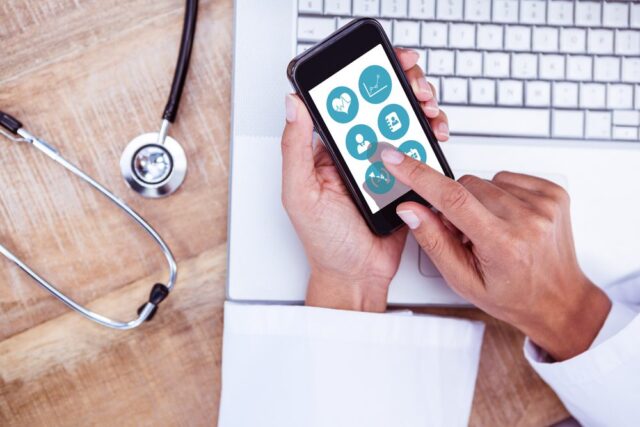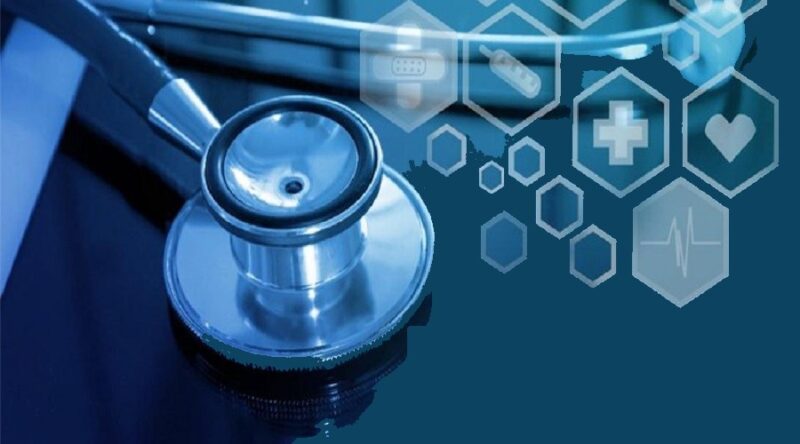In recent years, the healthcare sector has undergone a significant transformation driven by technological advancements. Among these changes, mobile app development has emerged as a crucial element for healthcare providers. As patients increasingly rely on technology for their health needs, healthcare organizations must adapt by creating user-friendly, efficient, and secure mobile applications. Here are several compelling reasons why app development is essential for healthcare providers.

Table of Contents
Toggle1. Improved Patient Engagement
Mobile apps enable healthcare providers to enhance patient engagement by offering easy access to health information and services. Patients can view their medical records, appointment schedules, and lab results through the app, promoting greater involvement in their healthcare journey. Engaged patients are more likely to adhere to treatment plans and follow up on their health.
2. Convenient Access to Healthcare Services
Apps provide a convenient platform for patients to access healthcare services anytime and anywhere. Features like telemedicine allow patients to consult with healthcare professionals remotely, reducing the need for in-person visits. This accessibility is especially beneficial for individuals in rural areas or those with mobility issues, ensuring they receive timely care.
3. Streamlined Communication
Mobile apps facilitate seamless communication between healthcare providers and patients. Secure messaging features allow patients to ask questions, request prescription refills, and receive reminders for appointments and medications. This streamlined communication helps build stronger patient-provider relationships and fosters trust.
4. Enhanced Care Coordination
Healthcare providers can utilize apps to coordinate care among various specialists and departments. By integrating features that allow for sharing patient information, care teams can ensure everyone is on the same page, reducing the risk of errors and improving overall patient outcomes. Enhanced care coordination leads to more efficient treatment plans and better management of chronic conditions.
5. Data Collection and Analysis
Mobile apps can collect valuable data on patient health and behavior, enabling healthcare providers to analyze trends and identify areas for improvement. This data-driven approach allows for personalized care, helping providers tailor treatment plans to individual patient needs. Furthermore, analyzing patient data can help identify at-risk populations and inform preventive care strategies.
6. Medication Management
Apps can assist patients in managing their medications by sending reminders for doses, providing information about potential side effects, and allowing them to track their adherence. Improved medication management leads to better health outcomes and reduced hospital readmission rates, ultimately lowering healthcare costs.
7. Increased Efficiency and Productivity
By automating various administrative tasks, such as appointment scheduling and billing, mobile apps can enhance the efficiency of healthcare providers. This automation allows healthcare professionals to focus on patient care rather than administrative burdens. Improved productivity not only benefits providers but also enhances the patient experience.
8. Compliance and Security
With the increasing focus on data privacy and security, mobile apps can help healthcare providers comply with regulations such as HIPAA (Health Insurance Portability and Accountability Act). By implementing secure features like encryption and authentication, healthcare apps protect sensitive patient information, fostering trust and confidence among users.
9. Telehealth Opportunities
The rise of telehealth has transformed the way healthcare is delivered. Mobile apps enable healthcare providers to offer telehealth services, allowing patients to consult with their doctors remotely. This convenience is particularly valuable during emergencies or public health crises, ensuring patients can receive care without exposure to illness.
10. Competitive Advantage
As technology continues to reshape the healthcare landscape, having a robust mobile app can provide healthcare providers with a competitive edge. Patients are increasingly seeking providers that offer convenient, tech-savvy solutions. By investing in app development, healthcare organizations can attract and retain patients in a crowded marketplace.
Conclusion
Mobile app development is no longer just a trend; it has become a necessity for healthcare providers aiming to enhance patient care and streamline operations. By embracing mobile technology, healthcare organizations can improve patient engagement, facilitate communication, and ensure compliance with regulations while offering convenient access to services. As the healthcare landscape continues to evolve, investing in mobile app development will be crucial for providers looking to stay relevant and meet the demands of today’s tech-savvy patients.


No responses yet